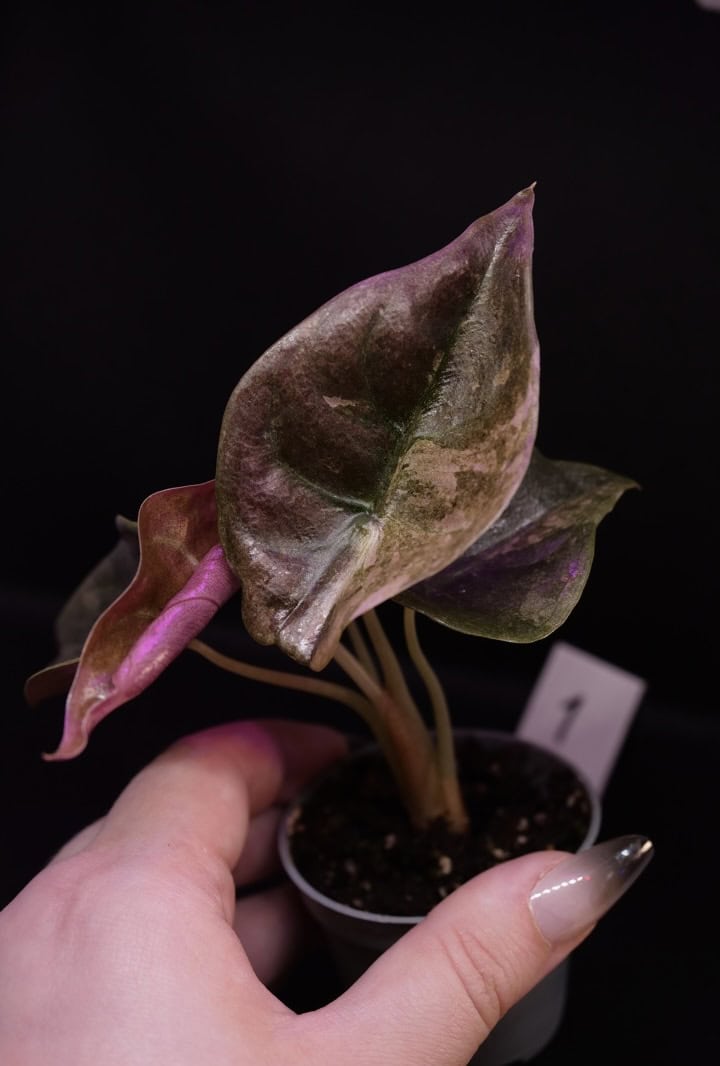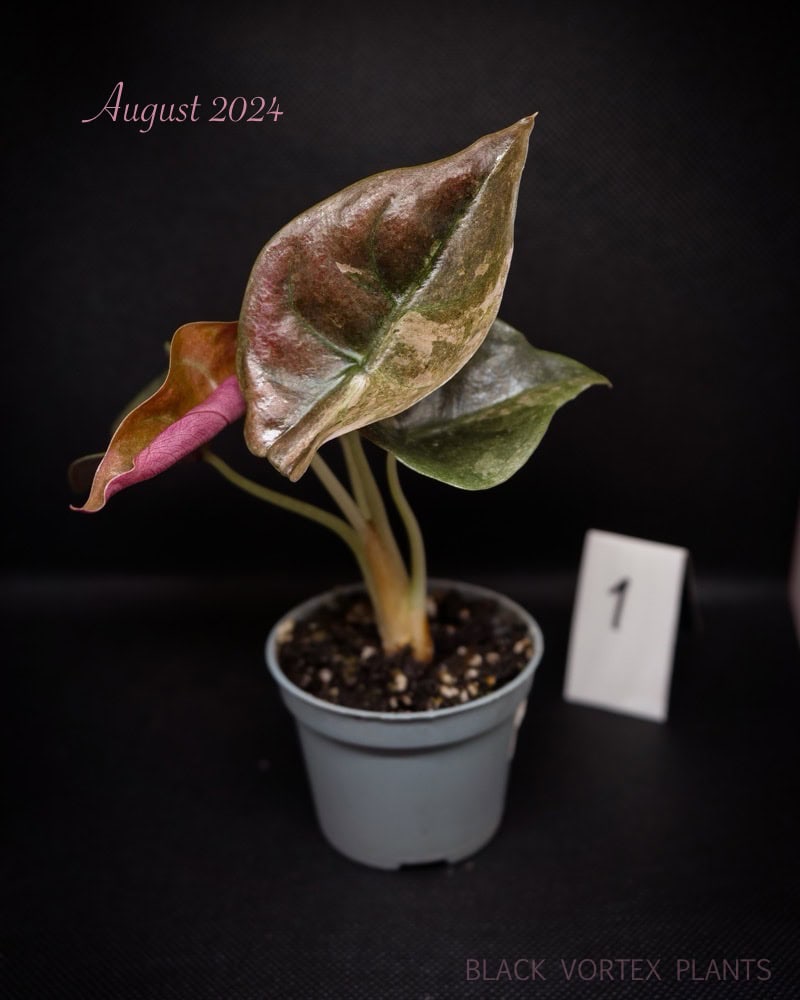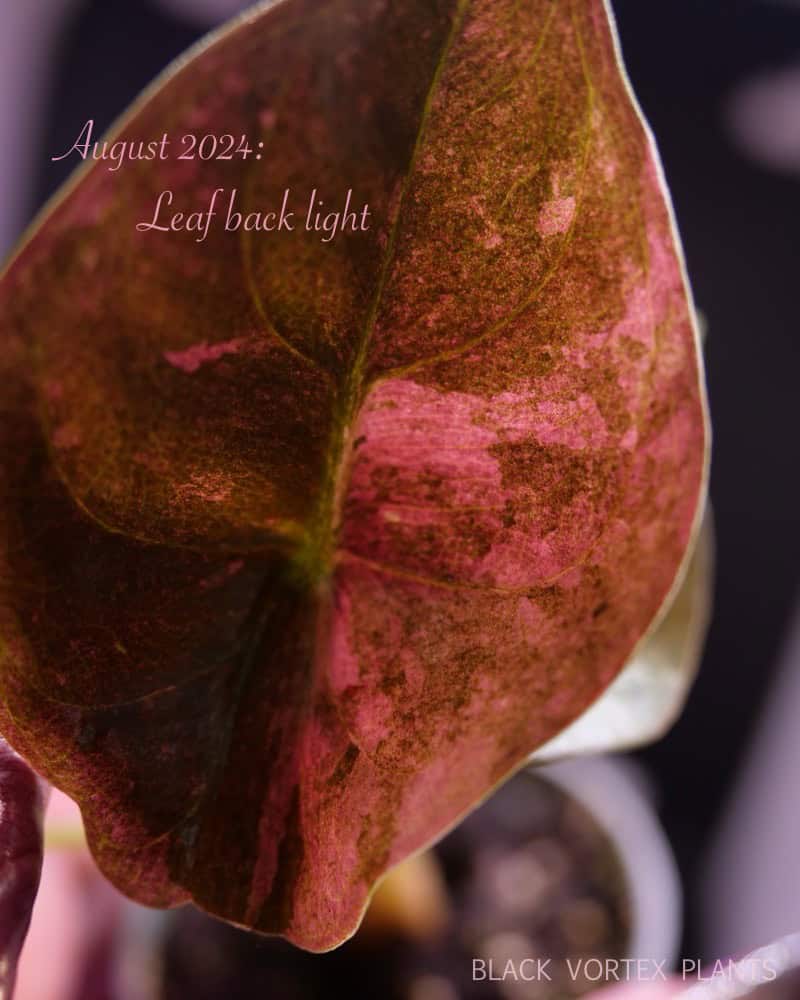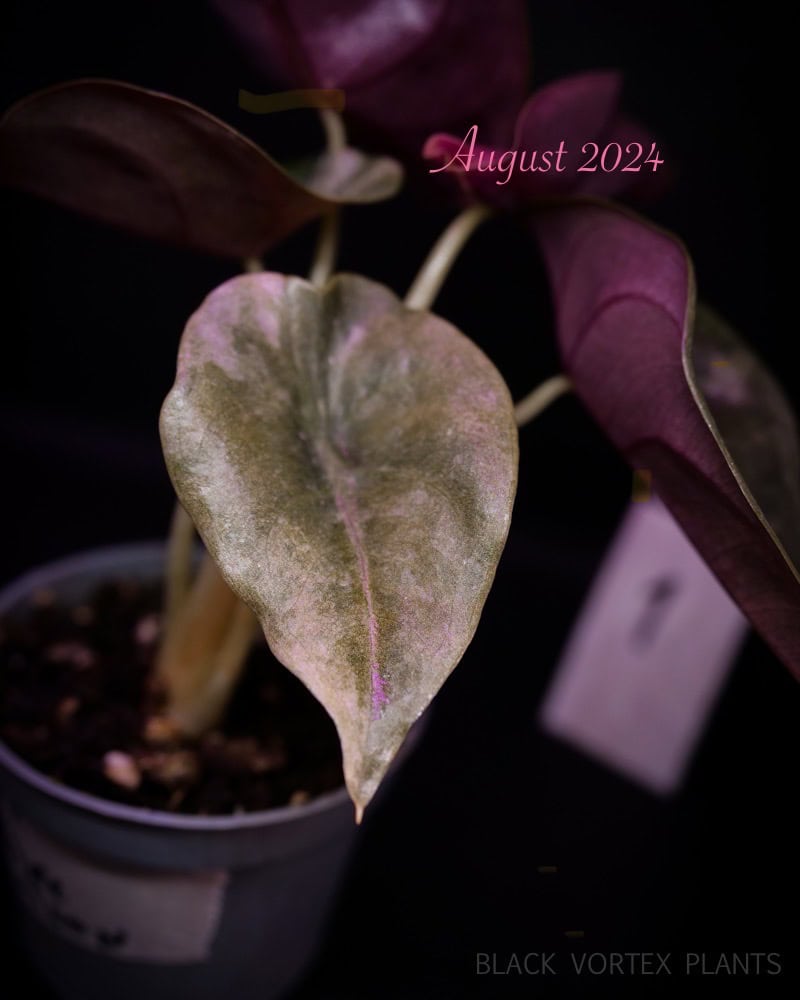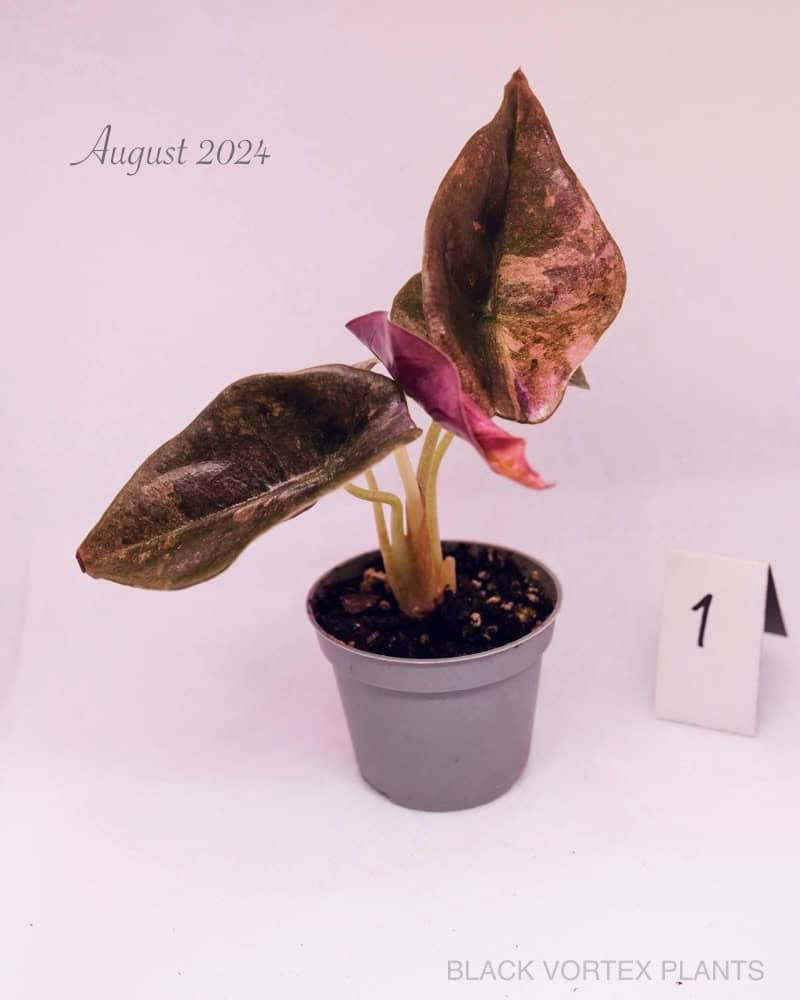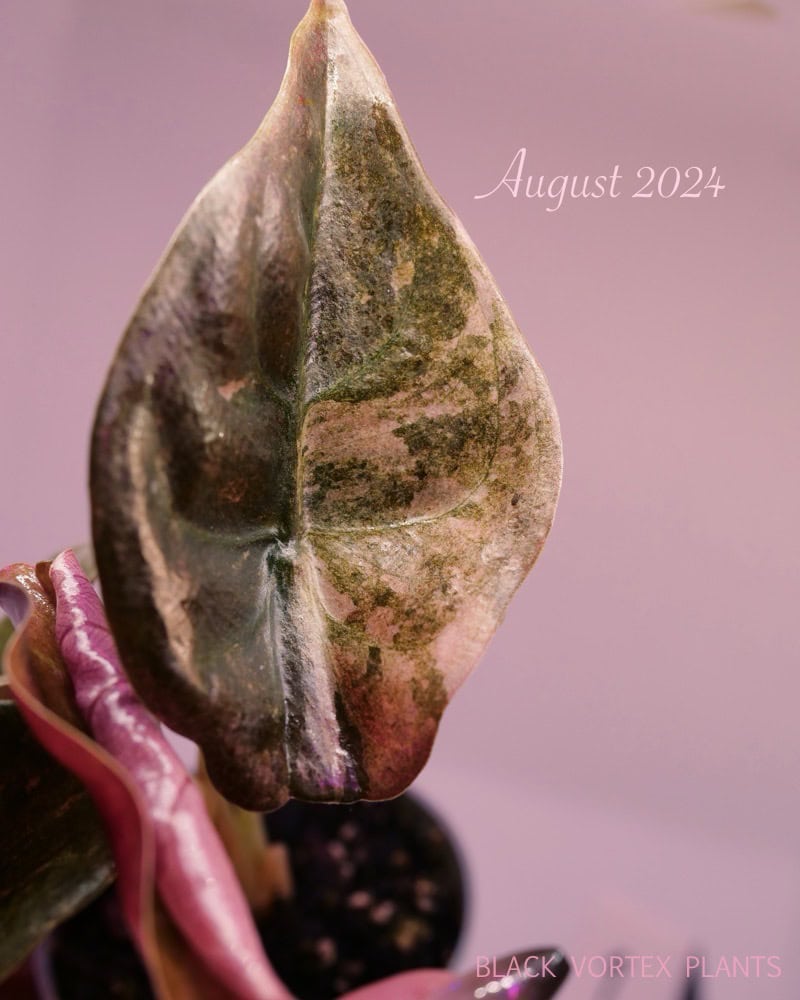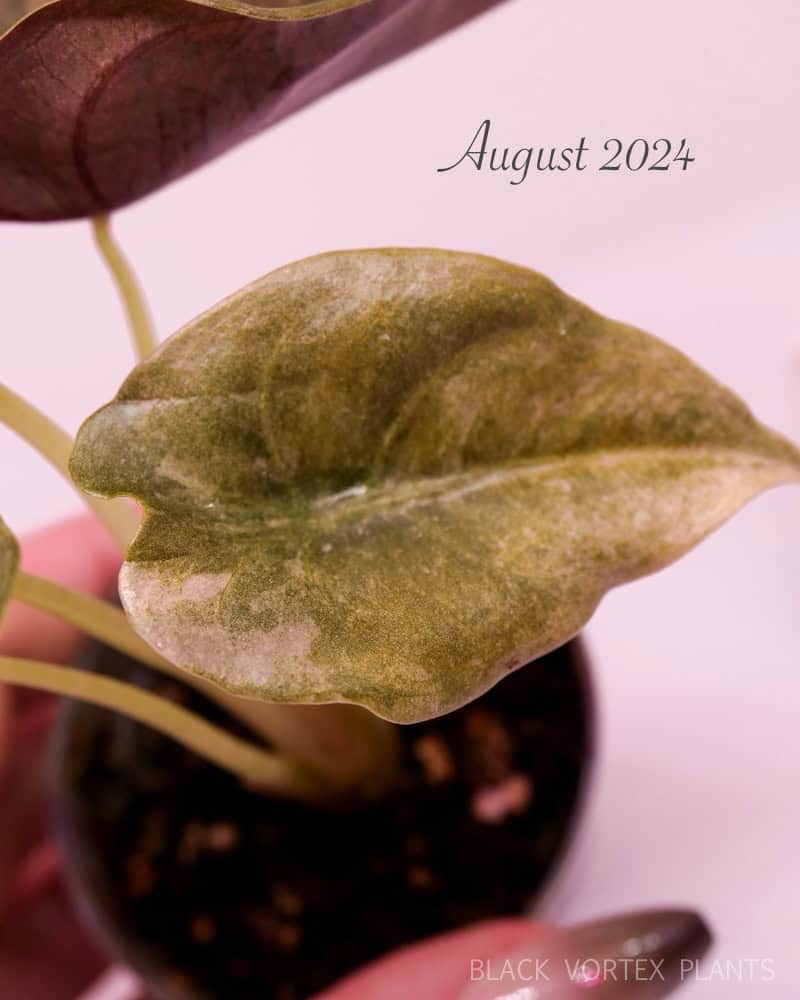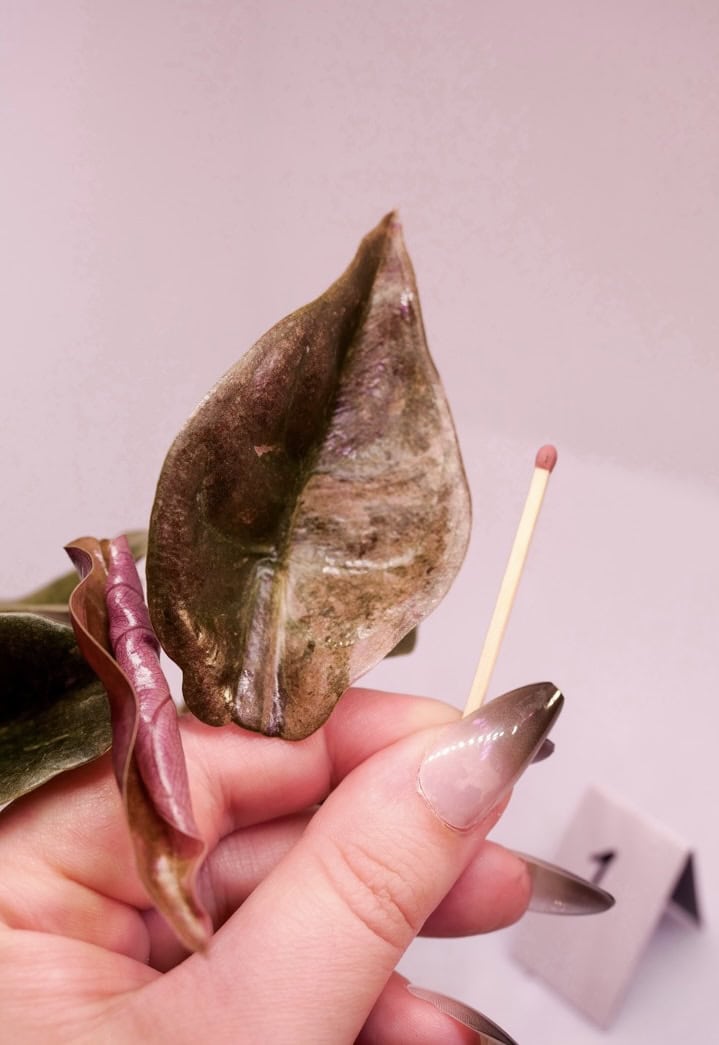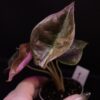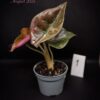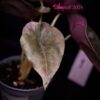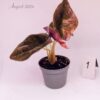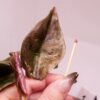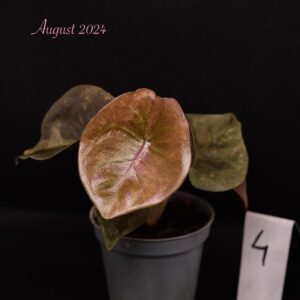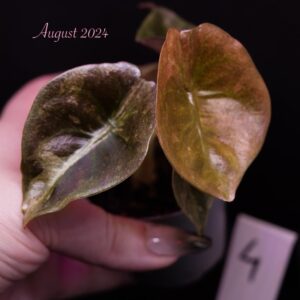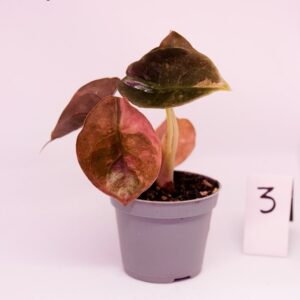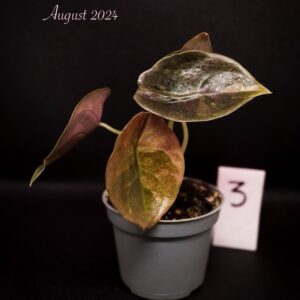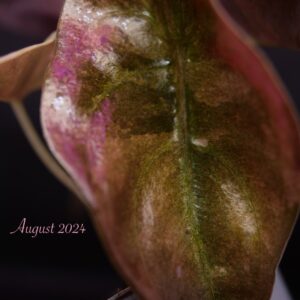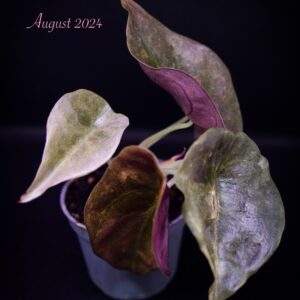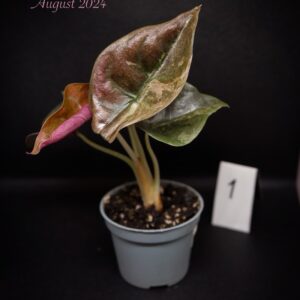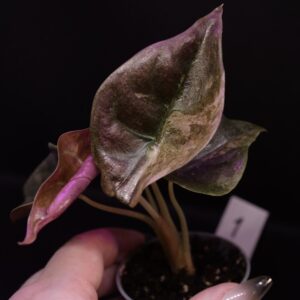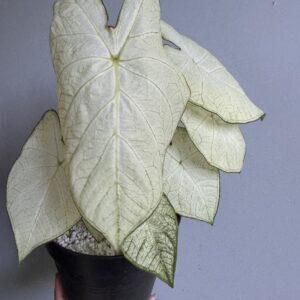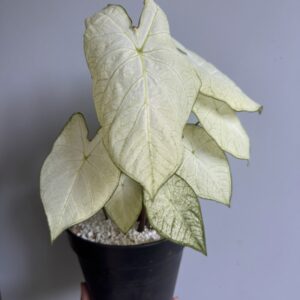Description
Alocasia cuprea ‘Red Secret’ Albo Pink Variegata is a rare and exotic houseplant that stands out for its stunning foliage. It is a variegated cultivar of Alocasia cuprea K.Koch, known for its glossy, metallic leaves that have a glossy, almost reflective texture, giving the plant its “cuprea” (copper) name. The variegated version of this plant features a unique combination of metallic brown-red and dark green leaves with different levels of variegation with pink and white hues.
The development of variegation
As Alocasia cuprea ‘Red Secret’ Albo Pink Variegata matures, its variegation becomes more vivid, consistent, and spread across larger portions of the leaf surface. In younger plants, the variegation tends to be humble and it may appear as subtle splashes of pink and white, scattered irregularly across the leaves. The splashes can intensify, with larger, more defined areas of variegation emerging. In some cases, entire leaves may develop extensive variegation, where the pink and white sections cover more surface area. And yes: it can produce half moons or full moons.
The contrast between the variegation and the metallic copper-red or deep green base color of the leaves also tends to sharpen as the plant ages. This results in a more striking visual effect, with the light variegation standing out vividly against the darker background. Additionally, older plants may develop more variegation with each new leaf, although the degree and pattern of variegation can still vary from leaf to leaf.
The plant’s overall health, lighting conditions, and care play a role in how the variegation evolves. Higher light levels (without direct sunlight) tend to enhance the intensity of the pink and white variegation, while poor light conditions can sometimes cause variegation to be less vibrant or even diminish as the plant focuses on chlorophyll production for photosynthesis.



